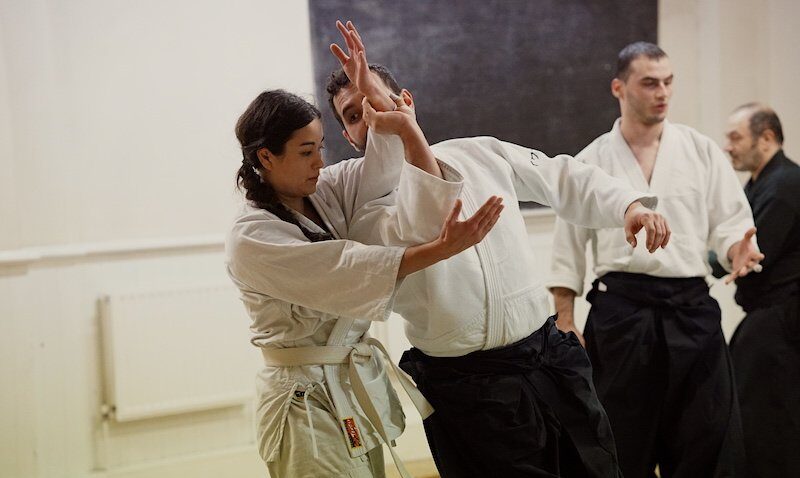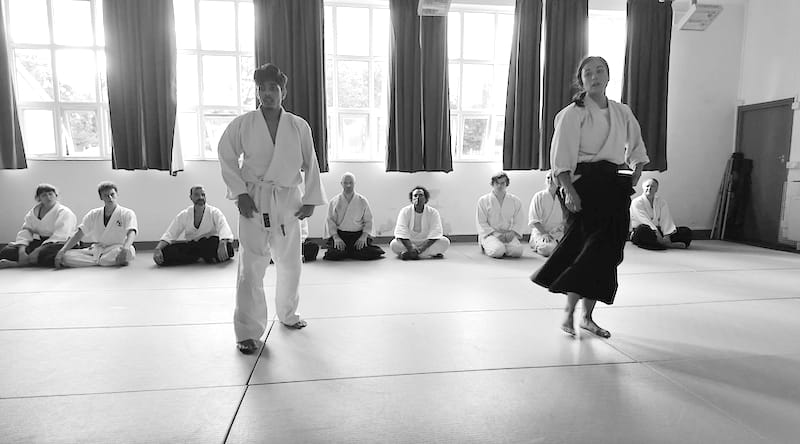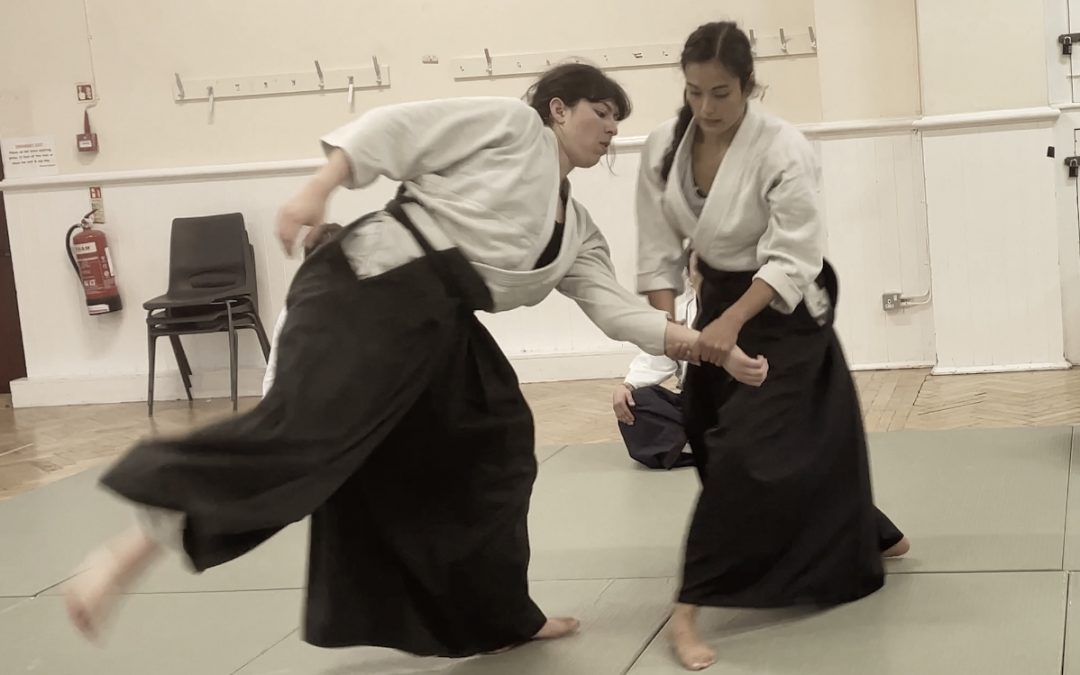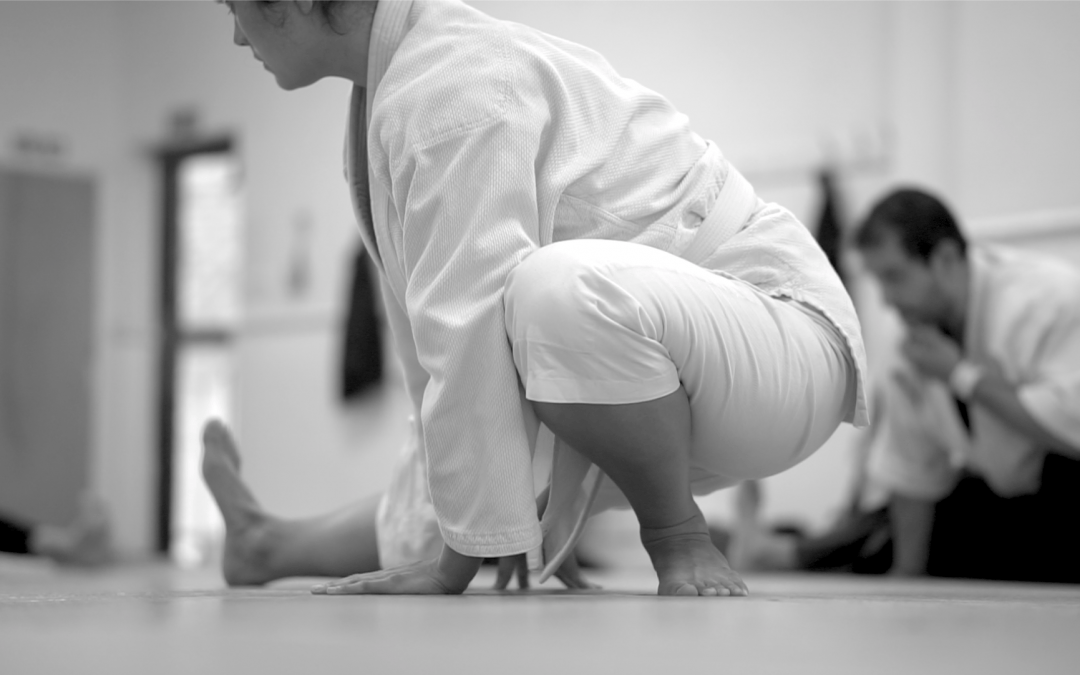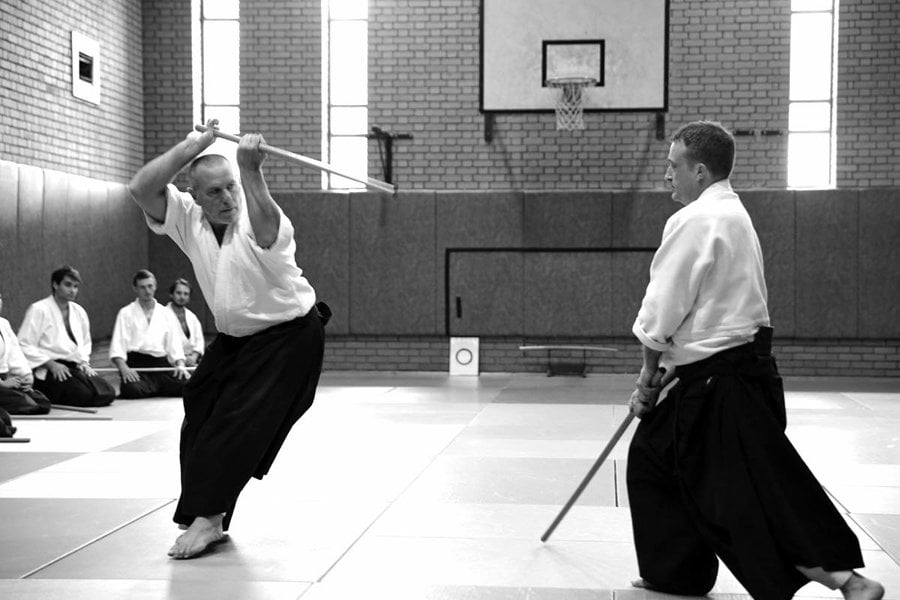My travels as a beginner and a woman in Aikido
My teacher Ismail Hasan Sensei once said “One sign of a good dojo is when there is a healthy balance of men and women in it”. When I reminded him of that, he said “Did I say that? I can’t remember but it sounds good.”
Which is certainly true of Aikido of London where I first started training about a year and a half ago. At first, I wasn’t particularly conscious of the healthy number of talented and dedicated female aikidoka in the dojo. Having been around a bit now, I realise it is quite unique.
Despite being hafu (half-Japanese), I had no former knowledge of aikido, other than “It’s a Japanese martial art”. When asked what grabbed me, it wasn’t instantaneous in the way that it seems to have been for others. When I fully signed up as a member at the start of 2019 I figured I’d maybe go along once a week. Turns out, Aikido is hard. I walked out of most lessons happy and knackered, head buzzing and full of questions. On reflection, that hasn’t changed! Anyhow, I soon realised I had to attend more than once a week to make real progress. I think something in the dojo etiquette and in the art itself really spoke to something deep inside me, and before I knew it, it had latched on and hasn’t let go since.
Within my first year or so alone I’ve had the privilege of seeing many great teachers outside of Aikido of London, in seminars and dojos both in the UK and internationally. There was Yahe Solomon Sensei, Donovan Waite Sensei and Jenny Flower Sensei to name just a few. Half a year in, I went to Tokyo, donned a hakama and spent a couple of weeks training on the 3rd floor at Hombu! I was nervous as hell and sometimes I’m surprised I had the balls to do it, but I’m only happy I did.
A brilliant thing about travelling for aikido are all the different bodies you get to train with, each offering different pieces of information. When people are super light and floppy- how do you create some tension? When they are heavy or stiff and don’t move the way you want them to- how do you make it happen? Some of the most informative and fun training I’ve had has been with partners who, without knowing you, quickly get a sense for how far they can push you, rather than handling you like a sheet of glass. At this point in my training, these are the people I am trying to grab.
Of course, like with with most things, there is a flip side. Venturing out of the dojo has also come with frustrating experiences.
One of the more subtle examples; at one seminar I was told by an unfamiliar male partner to not tire myself out, during tai no henko. At a subsequent seminar, a guy literally told me to “chill out”. The first couple of times, my response was mostly confusion. After all, I wasn’t particularly tired, and I was only doing what I know; attack, fall, get up, repeat. It’s just what we do at the dojo. It also appeared to be the attitude at Hombu in Tokyo. So as far as I was concerned, I didn’t know any different.
Being junior, I suck it up. “Maybe it’s to do with me being a beginner” I tell myself. But after some time, over different seminars, when this happens repeatedly, these small comments, these micro- aggressions, they add up and start to piss me off. The question ringing in my head is- “Would you say the same thing to a man?”
Interestingly, women I pair with never say such things to me. Nor do the men at Aikido of London.
At an after-party of a seminar of Donovan Waite Shihan, I and someone else were chatting to him when the conversation turned to my own training. I ended up recounting these comments to him, something similar of which had been said to me by a partner that very day, so it was on my mind. I guess what I was asking indirectly was – should I chill out? To my comfort, Donovan Sensei starts shaking his head. “No, you know what you do? You give them a little smile,” (he flashes a cheeky smile) “and then carry on exactly the same,” he said. “Ok, I will,” I responded.
I can imagine anyone with negative preconceptions of people based on gender (or anything else for that matter) have them both on and off the tatami, and are far more to do with themselves than they are to do with aikido. What I have concluded from my own limited experience is that the truly great teachers and aikidoka are not shrouded by their own egos and preconceptions, or at least have learnt not to be.
I would encourage any fellow beginners who haven’t already, to get out to seminars, train with different people and experience different teachers. You can start to feel out what it is you like, as well what doesn’t speak to you. Hopefully you may find, like me, that both of these things only confirm what you already thought- that your home dojo is the right one for you.
For me, Aikido of London is an excellent base to return home to after aikido adventures elsewhere. I am in a place where we’re are all treated and pushed equally to our individual limits, regardless of size, colour, background, or gender. I believe this to be something that trickles down from Ismail Sensei to his members. For the most part, the people I train with, both male and female, are fun, supportive and constructive in their feedback- verbal or physical. I owe much of my own progress so far down to the unyielding encouragement from my seniors and fellow juniors, with whom I have also made great friends.
The classes there are all mixed and there is no women’s only class (unless purely by chance). If it were suggested, I’m sure I wouldn’t particularly be in favour, for reasons that someone could fill another article with, probably far more eloquently than I could. However, this is no criticism of anyone who would want one and people have their own reasons after all.
Personally, I would love to see more women teaching Aikido. At Aikido of London, we are lucky to be able to attend Olya Kolchina’s classes, an inspiring aikido teacher and woman.
Unfortunately for me, Okamoto Sensei’s dojo was closed for Obon whilst we were in Kyoto. I would have loved to have seen her teach, partially as I noticed there are no female teachers at Hombu dojo yet. I’ve trained briefly in weapons with Janet Clift Sensei, and I am very keen to see her teach as well. Two things I hope to rectify after the lockdown has been lifted!
Interestingly my perception of my own teacher Ismail Sensei, is that he is undoubtedly strong and martial, and yet it doesn’t feel like machismo- which I would probably find hard to relate to. I think it is something else but I don’t know what yet. A few months into my training, I was having a conversation with him and he said something that struck me. He said “When there is something in the air, you have to grab hold of it or you can miss it.”
It’s hard to “chill out” when you’re trying to catch it.
by Cathy Humphris
